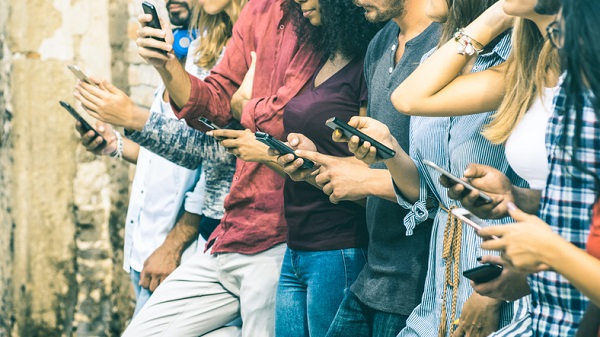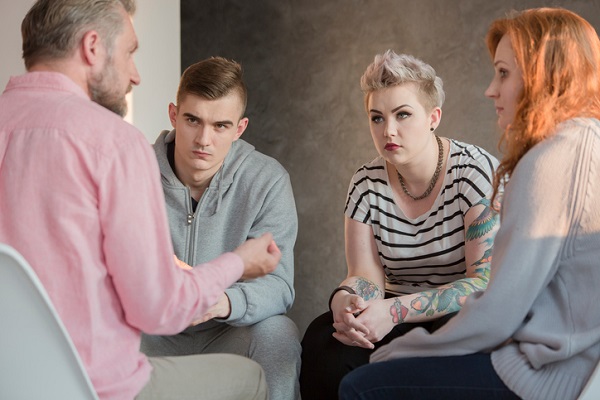In 2012, Harvard researchers attempted to determine why human beings devote 30 to 40 per cent of their speech to informing others about their “subjective experiences” (Tamir and Mitchell, 2012). They concluded that “self-disclosure”—communicating about oneself—was intrinsically rewarding, stimulating pleasure centres associated with eating and sexual activity (Walker, 2018; Tamir and Mitchell, 2012). Along with other brain research, this work is being examined to explain a new phenomenon: social media addiction (Walker, 2018; Kuss and Griffiths, 2011).
For some, these findings might explain long hours spent sharing on platforms like Twitter, Instagram, Facebook, and Youtube. Social media use is increasingly entering conversations on addictive behaviours, with comparisons being made to the most addictive drugs (Smith, 2018). Knowing about this phenomenon can help students in addiction counselling courses prepare for their future careers, especially as social media platforms continue to expand into daily life.
Here is an overview of social media addiction, which considers dependency risks, demographics, and potential treatments.
Social Media Poses Unique Addiction Risks
An estimated 74 per cent of all Americans check Facebook every day (Mediakix Team, 2018). Naturally, the mass popularity of social media platforms complicates the task of identifying addictive behaviours, especially as users employ the term ‘addiction’ anecdotally. While research on social media addiction remains limited, it is often defined by negative correlates of excessive use. Identifying potential addiction indicators, researchers Diana Kuss and Mark Griffiths (2011) note that social media can decrease real-world participation and achievements—and engender relationship problems (Smith, 2018). Among the patterns that also resemble drug and alcohol misuse, social media addiction is thought to mirror ‘withdrawal’ symptoms. Reduced social media connectivity might help explain the feelings of anxiety arising in users separated from their phones (Russo, 2018; Smith, 2018). Thus, the vast majority of social media use is considered ‘non-problematic’, but these criteria can help professionals spot addictive behaviours after addictions counselling training.

Reduced ‘real-world’ interaction can be an indicator of social media addiction
Researchers Have Identified Key Demographic Trends
According to a 2015 Pew Research Center survey, 15 per cent of young Americans (18-29) are “heavily dependent” on their smart phones (Russo, 2018). Unsurprisingly, social media addiction is reportedly more prevalent among generation Y (millennial) and generation Z (post-millennial) users. Conducted with the Bergen Social Media Addiction Scale (BSMAS), a 2017 study also found that women were more likely than men to exhibit addictive behaviours (Andreassen et al., 2017).
Aside from youth and gender, Andreassen et al (2017) also found that “not being in a relationship, being a student, lower education, lower income, lower self-esteem, and narcissism were associated with higher scores on the BSMAS”. Across all demographics, dependency is compounded by health and safety factors like smartphone use behind the wheel—with 50 per cent of in-vehicle phone use directed toward social media platforms (Mediakix Team, 2018).
Potential Treatments to Implement After Addictions Counselling Training
Social media addiction is not yet understood with the same depth as drug and alcohol misuse, but some treatment approaches have proven viable. Like many addiction behaviours, social media dependency can arise alongside feelings of inadequacy, specifically the urge to “inhibit a negative self-evaluation” (Andreassen, 2016). Accordingly, addictions experts can help clients address destructive thought patterns with counselling skills like motivational interviewing.
Cases of social media addiction have also proven responsive to cognitive behavioural therapies. This approach might include challenging problem thinking, managing feelings, and setting behavioural parameters around social media routines (Woodcock and Associates, 2015). Addictions counsellors can also note that social media misuse is often accompanied by other mental health issues, including depression and anxiety (Woodcock and Associates, 2015). Students in addictions counsellor courses can continue to track best practices as treatment strategies evolve alongside social media itself.

Group therapies can help mitigate the isolation of social media addiction
Are you hoping to provide expert support for addiction recovery?
Contact Rhodes Wellness College to know more about our therapist courses in Vancouver.
Works Cited
Andreassen, C. S., Pallesen, S., Griffiths, M. (2017). “The relationship between addictive use of social media, narcissism, and self-esteem: Findings from a large national survey”. Addictive Behaviors, 64 (2017): pp. 287-293. Accessed from: https://www.sciencedirect.com/science/article/abs/pii/S0306460316301095
Dr. Woodcock & Associates. (2015). Social Media Addiction. Retrieved from: http://www.woodcockpsychology.com.au/social-media-addiction/
Kuss, D. J., Griffiths, M. D. (2011). “Online Social Networking and Addiction—A Review of the Psychological Literature”. International Journal of Environmental Research and Public Health – Open Access Journal, 8 (9): pp. 3528-3552. Accessed from: https://www.ncbi.nlm.nih.gov/pmc/articles/PMC3194102/
Mediakix Team. (2018). These 8 Social Media Addiction Statistics Show Where We’re Spending our Time. Mediakix. Retrieved from: http://mediakix.com/2018/04/social-media-addiction-statistics/#gs.TUQJItw Russo, M., Bergami, M., Morandin, G. (2017). Surviving a Day Without Smartphones. MIT Sloan Management Review. Retrieved from: https://sloanreview.mit.edu/article/surviving-a-day-without-smartphones/
Smith, N. (2019). Opinion: Social Media Looks Like the New Opiate of the Masses. Bloomberg. Retrieved from: https://www.bloomberg.com/view/articles/2018-04-04/social-media-use-bears-similarities-to-drug-addiction
Tamir, D., Mitchell, J. P. (2012). “Disclosing Information about the self is intrinsically rewarding”. Proceedings of the National Academy of Sciences of the United States of America, 109 (21): pp. 8038-8043. Accessed from: https://www.ncbi.nlm.nih.gov/pubmed/22566617
Walker, L. (2018). What is Social Networking Addiction? How to Tell if You’re Hooked. Lifewire. Retrieved from: https://www.lifewire.com/what-is-social-networking-addiction-2655246










